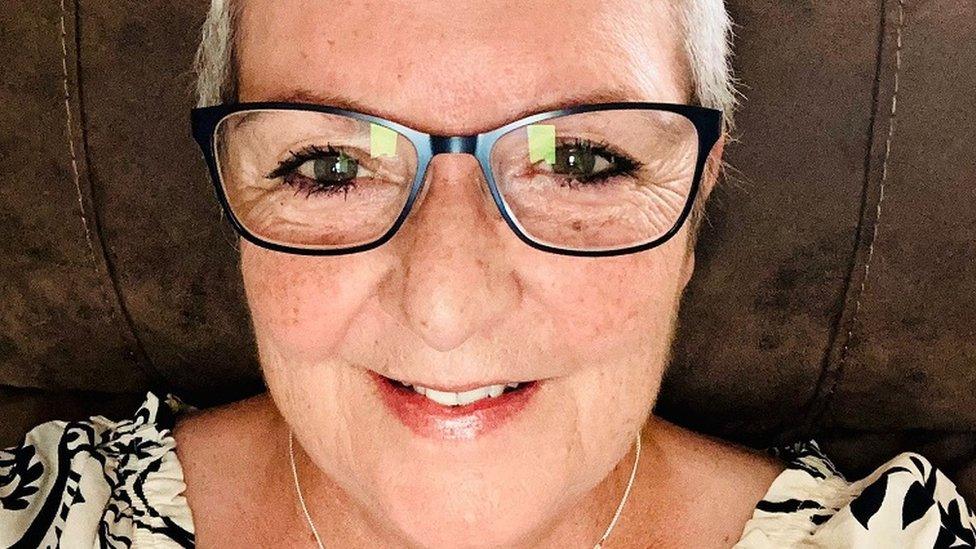Lower breast cancer screening age, patient says
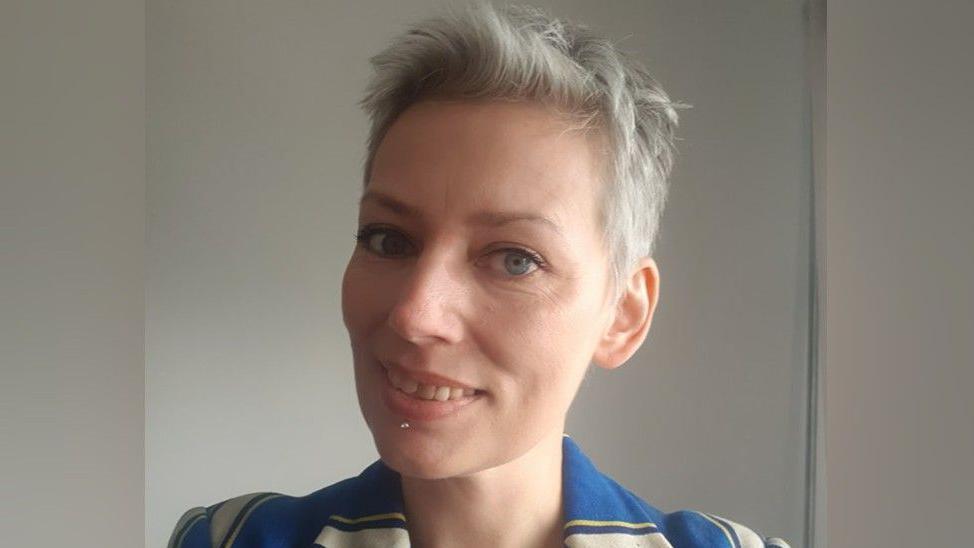
Felicity Rackstraw said the current routine screening age of 50 should be reduced after she contracted breast cancer at the age of 44
At a glance
A cancer patient has called for the age of routine breast cancer screening to reduced from the current age of 50
Felicity Rackstraw realised she had cancer when she was 44 through self-checking for lumps
Dropping the age would be "a massive step forward", she says
The government is "receptive to any evidence" to suggest an age range change
- Published
A woman who was diagnosed with breast cancer at the age of 44 has called for the routine screening age to be reduced.
Felicity Rackstraw, from Stoke-on-Trent, who has regularly self-checked for abnormalities, and went for a screening two years ago after she found a lump.
She was six years below the age of 50, when the NHS offers women screenings and said they needed to be offered to younger women.
The Department of Health have said: "The UK National Screening Committee is receptive to any evidence that suggests age range changes to existing programmes would improve outcomes."
Dropping the age would be "a massive step forward and would catch a lot more women", Ms Rackstraw said.
Ministers were "relying on people to self-check every month" below the age of 50, she added.
"You would not be able to visually tell that I had breast cancer. I had none of the other things they tell you to look for," Ms Rackstraw said.
'How do I check for breast cancer symptoms?'
The first noticeable symptom of breast cancer is often lump or an area of thickened tissue.
Most lumps are not cancerous, but it's always best to get a medical check. What to look for:
A new lump or area of thickened tissue in either breast
A change in the size or shape of one or both breasts
A discharge of fluid from the nipple
A lump or swelling in either of the armpits
A change in the look or feel of the skin, like puckering, dimpling, a rash or redness
A rash (like eczema), crusting, scaly or itchy skin or redness on or around the nipple
A change in nipple appearance, such as becoming sunken into your breast
'Obvious it was cancer'
With no apparent symptoms, Ms Rackstraw felt a lump in between her right breast and armpit.
She went through the NHS to double-check her self-diagnosis but said she had to wait six weeks.
"It was obvious from the biopsy scans it was cancer," she told BBC Radio Stoke. "It couldn't possibly be anything else.
"I remember thinking, this wasn't part of my plan today."
Ms Rackstraw urged other women under 50 to check themselves as "if I didn't do that, I would be telling a very different story right now".
Currently in the UK, women between the ages of 50 and 70 are invited to be screened for breast cancer every three years.
'A call for evidence'
The Department of Health and Social Care said scientific evidence was considered by the independent UK National Screening Committee.
“ [It] is made up of clinical experts... and makes a decision on age cohorts to ensure a programme does more good than harm," a spokesperson said.
“[The committee] is receptive to any evidence that suggests age range changes to existing programmes would improve outcomes.
"Anyone is welcome to submit proposals to change screening programmes through a call for evidence."
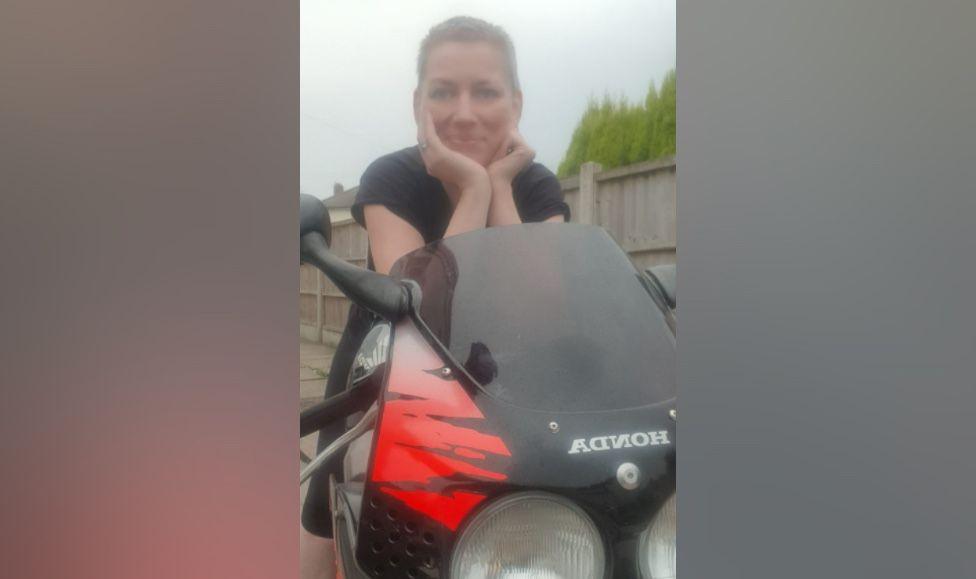
Ms Rackstraw said getting back on her motorbike was a goal which kept her going through her cancer treatment
The 46-year-old is an avid motorbike enthusiast and saw her hobby as a "mental health go-to" but was not able to ride for more than a year as her cancer treatment left her too weak.
Thinking of the moment when she would finally get on her bike motivated her through her treatment as "the metaphorical pot of gold".
Being diagnosed was "an isolating and lonely experience" for Ms Rackstraw but she said being in a cancer support group, Pink Sisters and Misters, had helped.
"They've been there, or are there, or they're a little bit further along the path than you are," she said.
"They've finished treatment or they're starting treatment and they're looking to you for advice and support."
Ms Rackstraw is due to undergo her last round of chemotherapy in the next few weeks.
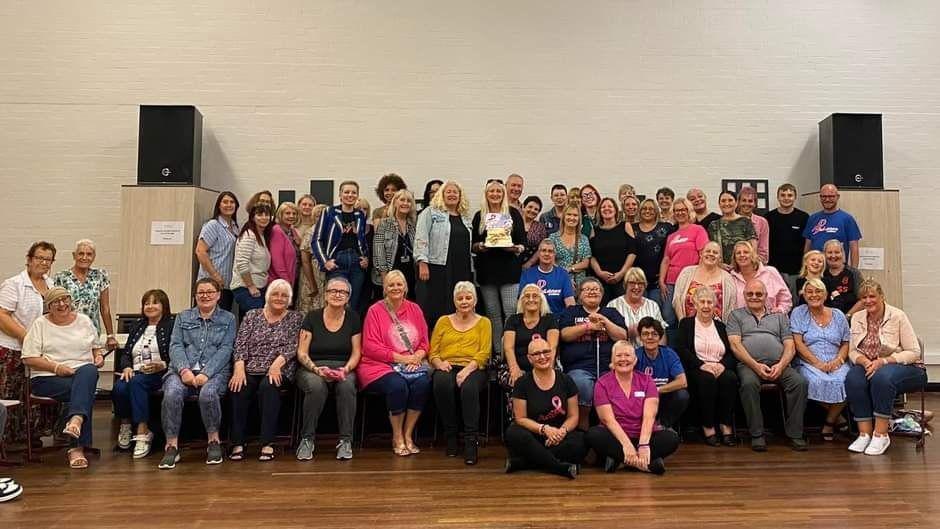
The Pink Sisters and Misters support group had proved vital in helping Ms Rackstraw through her treatment, she said
The group plans to release a calendar to raise money for its work and Ms Rackstraw's page will include photos of her on her motorbike.
Follow BBC West Midlands on Facebook, external, Twitter, external and Instagram, external. Send your story ideas to: newsonline.westmidlands@bbc.co.uk, external
Related topics
- Published13 August 2020
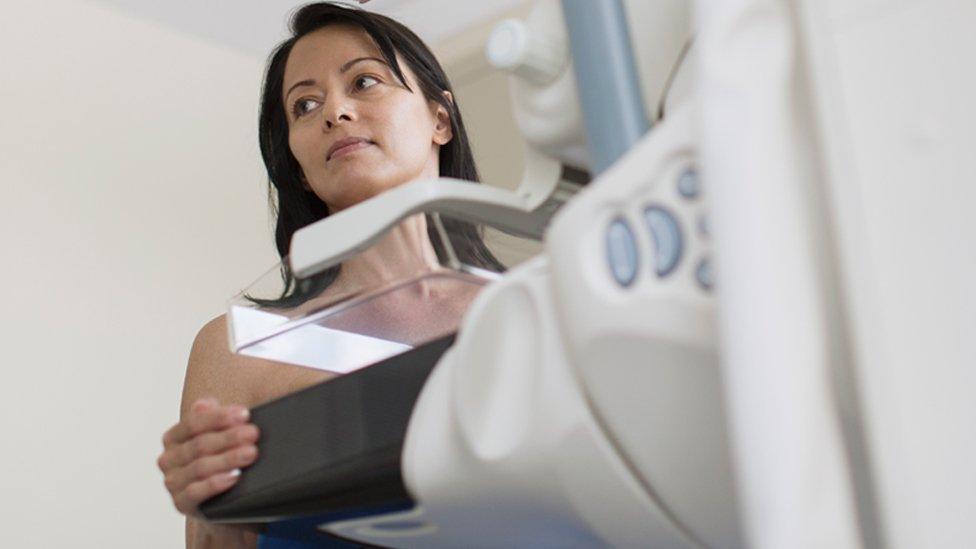
- Published4 October 2023
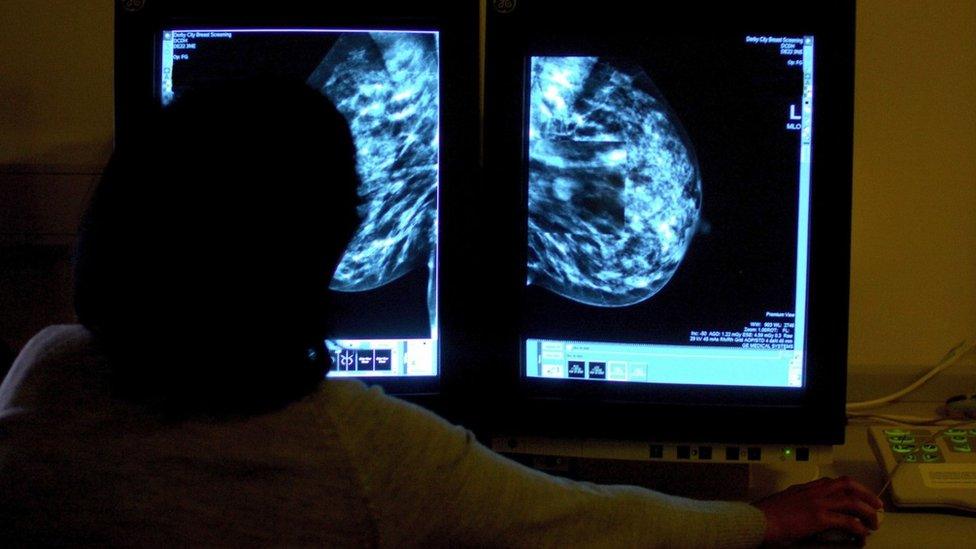
- Published14 June 2023
